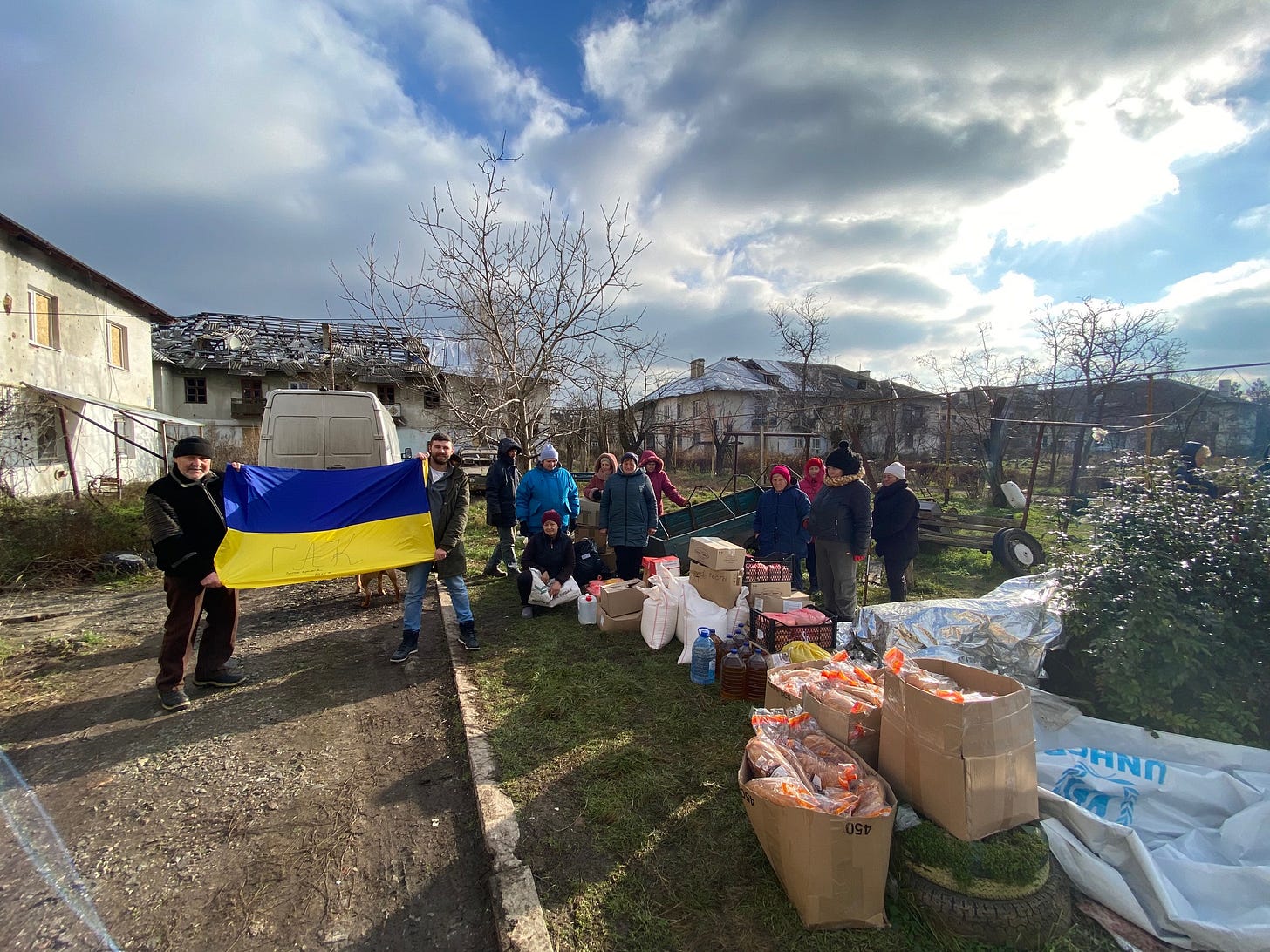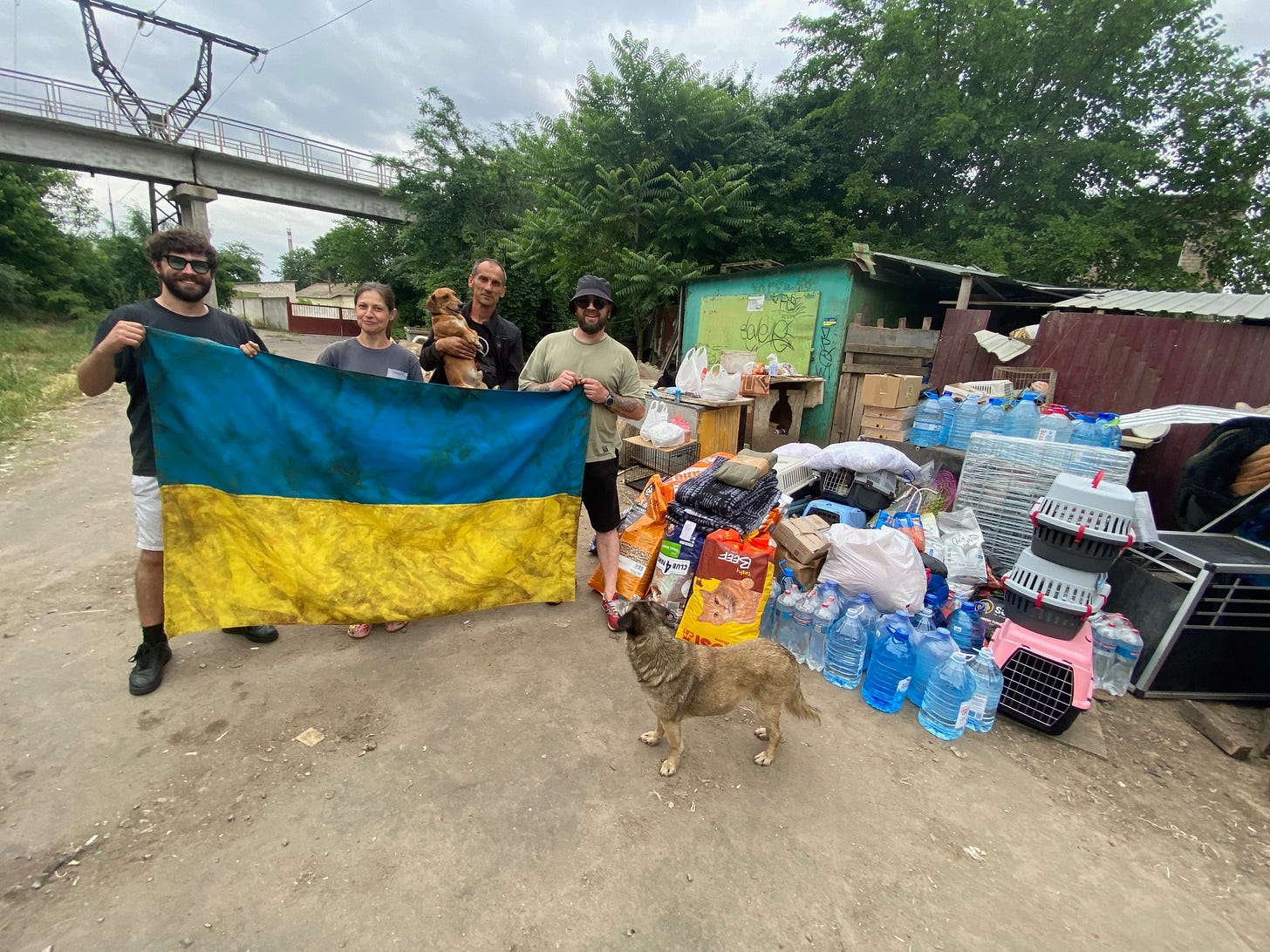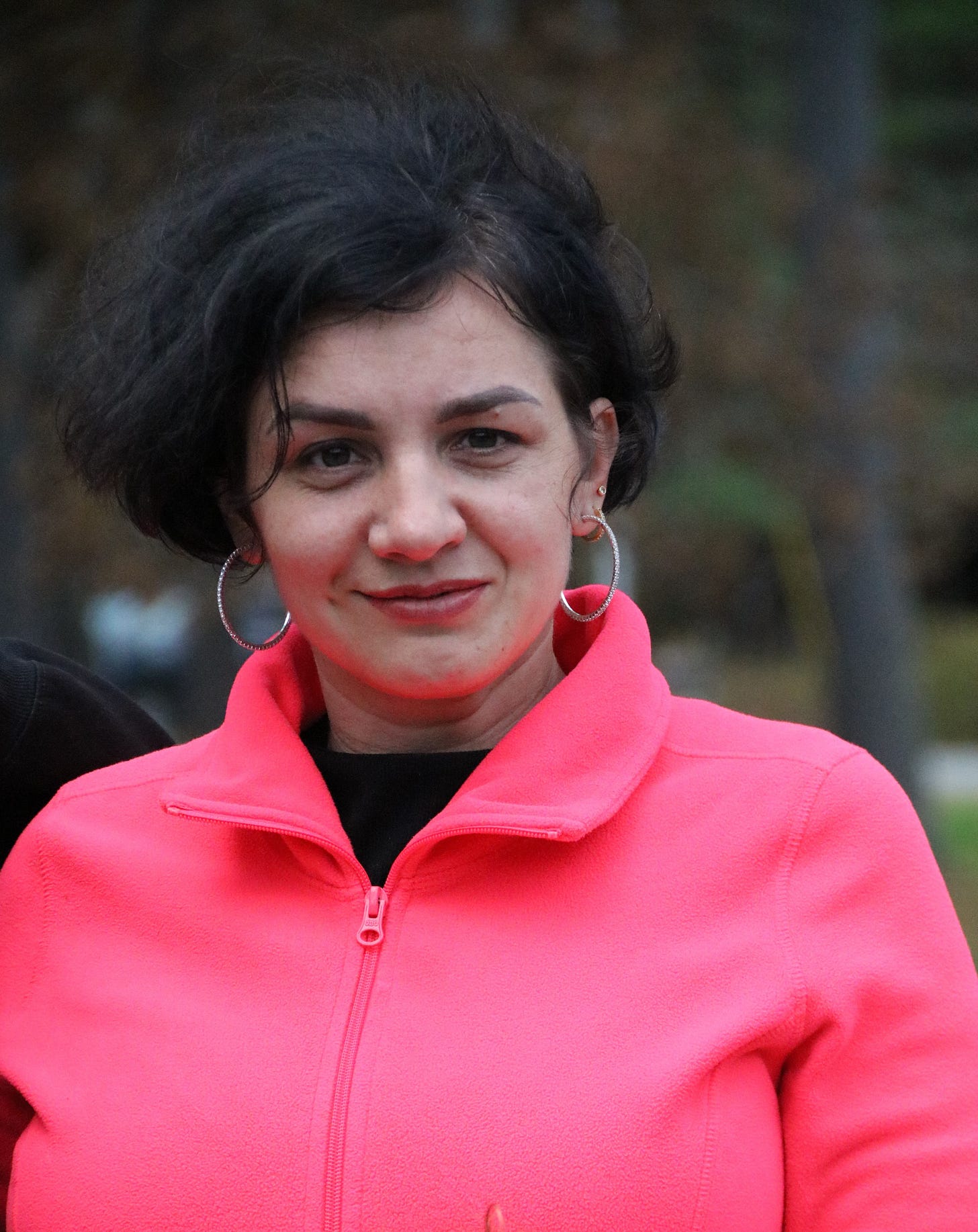Ukrainians Find Refuge in Deerpark
Ukrainian refugees described what they did when war intruded.
Deep in Deerpark, on a rural road, a small Ukrainian girl refused to get out of bed last winter. She was afraid of bombs, according to the American who owns the house and has been sponsoring Ukrainian refugees. But the girl eventually trusted the peace in Deerpark and could be seen roaming the house as others staying there described the scene they fled.
They had expressed interest in talking to this reporter, the sponsor said, because they don’t want the Ukrainians defending themselves from Russians to be forgotten. They speak a little English, and the conversations were facilitated by a translator on a cell phone. But they responded to many questions, albeit in heavily accented English, with animation and strong feeling.
Maxim, 28, who had been in Kyiv working with a Spanish copywriter, recalled the moment he realized the war had begun. He was sleeping in his 18th floor apartment at 5 a.m. when his father called to warn him. He could hear sirens in the background “all over the place” and then saw three Russian helicopters on the ground. Later he could see bombs hitting the city and tanks on the roads.
“At the beginning of the war, the Russians were trying to capture as much as they could, and I worried about where to live,” said Maxim. “Russian troops stayed near Kyiv for several weeks and emptied the city. Mostly military people stayed in town. Most residents left.”
He drove out of town to be with his father who lived outside of Kyiv with two dogs, nine and 13 years old, rescued from shelters.
In the next weeks, the roads familiar to Maxim would be littered with damaged cars. He also encountered three human bodies, animal bodies and many lost dogs.
“A dog jumped in the car, and I had to take him home,” said Maxim.
But recovering bodies was hazardous.
“You couldn’t get close. Russians put mines around bodies and houses so people couldn’t go in,” he said. “Some volunteers died trying to retrieve bodies and check houses for survivors.”
From translations of Spanish press, he heard cautionary horror stories. A man trying to break into a pharmacy to get insulin for his mother was blown up by a mine. A man was forced to watch as women in his family were raped and killed.
Maxim told these and other stories because, he said, “I hope it helps so that people do not forget what my nation is suffering in this bloody fight for freedom. ”
For a year and a half, Maxim worked with funding and shipments from gourmet Chef José Andre’s organization, World Central Kitchen, which provides food to disaster-stricken people. From a compound near the Belarus border, they brought food for the Ukrainian army and the city of Kherson after occupation by the Russians.
“In Kherson, as Russian troops were leaving, I heard loud Russian rockets. I never knew the difference between the sound of Ukrainian launches and Russian hits until I was in Kherson,” Maxim said.
Then Maxim had an opportunity to go to the U.S., offered by the sponsor with a house in Deerpark.
“I have many relatives drafted. When I asked if I should stay and help or leave, they said to take the opportunity for peace,” he said, explaining how he decided to leave.
The sponsor, who did not want her name made public, had an empty house belonging to her sister on the property also occupied by her house and was willing to support refugees for six months at a time, as required for the role by the Hebrew Immigrant Aid Society.
“The refugees don’t need very much,” she said. “Just $50 to begin with.”
The refugees are eager to get work permits and independence, she said. Really, Deerpark was a place to wait for their work permits.
Which is what Maxim was doing. While he waited he worked on technical and organizational issues for the World Central Kitchen, he said. But he had a job offer to install internet cable, which he had begun in Maine by the time this story was written.
“I feel sad. I miss home. I’ll be better when I start work and send money to Ukraine,” he said. He believes “100%” that he will eventually go back. His father decided to stay there with his dogs.
Also staying in the Sparrowbush house and tearful about parents left behind was Olga, with her three children and husband. In the Rivne region of Ukraine, she had been a police officer working on criminal cases, then head of analytics, but she shifted to a dispatcher position after her children were born.
“The conflict started earlier, in 2014, in the eastern territories in a few areas,” she said. “People talked about it, but we didn’t believe it. We thought of the Russians as brothers.”
Then one morning in 2022, while getting her children ready for school, she received messages directing her not to bring her children to school. So she called her sister, who told her that Russian planes were dropping bombs. Troops were trying to land and occupy the area. A plane had crashed.
“The road was being cleared so tanks could come through. The Russian military was clearing roads by dropping bombs. The Russians had entered from Belarus, moved through Rivne to Kyiv to make a circle. I contacted other dispatchers. They said Russian troops were moving by us to Kyiv. I was scared. I took the kids and fled. We live near strategic buildings.”
She gathered the children, coats, documents, water and their dog and four cats, to go to the village where her father lives.
One of the cats, she said, “was gentle and loved to be held, but the day before the war started, she didn’t want to be touched and hid with the other cats. The dog hid under the bed, even though we hadn’t heard about the war. My father is still there because his mother refused to leave because of the animals,” including her father’s dog, born on the street, the offspring of a stray dog, she said.
However, Olga and her sister and their five children headed for the Polish border.
“It was the closest border, but the line was 54 hours long,” Olga said. “After our first day of waiting, we got a call from a woman where bombing was active who wanted help getting out. When we had only three kilometers left in line to the border, a bomb fell. It was scary. Some people decided to walk. But we decided to wait.”
After they crossed the Polish border, she was taken to an office to sleep, and volunteers gave her hungry children food. Then Olga’s sister took the wheel and drove them to Warsaw, where they were picked up by Olga’s husband, newly trained as a truck driver. He wanted to go to Amsterdam.
First they stopped in a Netherlands refugee camp and asked for protection. They were taken to a prison for fingerprints and blood samples. Then they slept in a refugee hostel, “with all kinds of people, noise and stress,” said Olga.
After a day, they went on to Amsterdam, where they were hosted as refugees for nine months in a home where bunk beds were installed for her children.
“My children were strong and serious,” she said. “They understood the situation and thought only of seeing their cats and dog.”
She worked in a Netherlands supermarket until she and her family left for the U.S. They have been in Deerpark since January, now paying rent. Soon after they arrived in the U.S., she was fingerprinted and investigated, then received a social security card six weeks later. She hopes to work in IT at home to be available to her children with their new friends and new language in a new place, she said. Olga’s husband has work as a truck driver.
She calls her father five times a week and hears from him about her grandmother’s physical troubles and the bombs that fall a couple of times a month.
Meanwhile, a cousin, 30 years old, injured his arm and leg fighting in the war and is hospitalized. Another cousin and some friends who have children also fight. Boys she grew up with were killed in the war. Her best friend in the police department died trying to remove a bomb.
Her sister decided not to come to the U.S. and stayed in Europe.
“The war was a surprise,” Olga said. “We don’t understand why.”
The sponsor’s sister had wondered what to do with her house while she was away, but the sponsor saw how the house could work for refugees.
“Many Ukrainian Americans live in Glen Spey,” she said. “The Hebrew Immigrant Aid Service introduced me to Olga, and we took a class at HIAS on how to behave, what to have in the pantry. HIAS made a list of people interested in coming. I put together sponsor circles,” people living nearby willing to assist the refugees, which HIAS initially required. “More typically churches and synagogues arrange sponsors.”
Olga arrived in January with her three daughters and husband.
“We met them at JFK Airport at 11 p.m. They were exhausted,” said the sponsor. The kids slept on the ride home. But the adults were enchanted by the lights, the New York City skyline. Olga’s husband said, ‘This is like a dream. I can’t believe it.’”
“The people who come are motivated and proactive. They don’t want to be a burden,” said the sponsor, who has now sponsored 20 people. “The first time it’s wild.”
But she has become accustomed to the needs refugees have when they arrive—getting local cell service for their phones, having six pieces of identification for driver’s licenses, including a notarized U.S. rental lease, and some unexpected needs. Where would they find a pediatric cardiologist who would take Medicaid?
Contacts are vital. The sponsor’s husband happened to have climbed Mount Kilemanjaro with someone who knew the president of Montefiore Hospital, who knew just such a cardiologist. And the traumatized little girl who had trouble getting up in the morning was aided by equine therapy sessions at GAIT.
“I love having them there,” the sponsor says of Olga’s family.
Asked what she loves about having them in the house, the sponsor said, “I love having been able to do something positive in the face of a senseless war after seeing images on TV that made me feel like I could do nothing. I love having little children running around in my life. I have loved watching the family feel safe, and I’ve been proud of them as they have grown independent. I have become close to people in the sponsor circle, some who I barely knew and now feel amazed by their resourcefulness and generosity. I get more connected to the community through them. I’ve watched Maxim find himself too as he has gained confidence and found home. He was correct that after he found work he also found healing in his spirit."
How long Olga’s family will stay is not certain. She likes rural life. Her husband is drawn to the city. Meanwhile, the children collect pine cones and place them around the house, a Ukrainian custom to keep the gremlins away.
Community focused news can only succeed with community support. Please consider the various subscription levels.









